Sometimes sea kayaking can give important life lessons, unrelated to skill, ability or aptitude. One of these lessons was exposed on last weekend’s CKC trip to the Jurassic Coast: if you don’t wear underpants while paddling 14 nautical miles, the chaffing will stop you paddling the next day.
And so it was that part of the CKC group went Greenland Fishing instead of paddling on the Sunday. Although giving it a different name to normal fishing didn’t seem to make the fish any more catchable. So the Jurassic Coast fish stocks remained safe, with a grand total of no fish caught. At least one sizable fish got away, although estimates of its actual size varied:
But we are getting ahead of ourselves and need to start at the beginning: some of the CKC members joined the first “Jurassic Gathering” paddling weekend, based out of Carey Camp in Wareham. Jurassic Gathering was a long weekend of paddling and training with top level coaches and leaders from all over the UK and Europe. About 80 people paid to attend the event, which had the primary purpose of raising money for the Air Ambulance and was organised by Steve Jones. Steve had suffered a heart attack while out paddling and without the emergency services wouldn’t be paddling today.
Although the charity aspect was significant, CKC love paddling in this world heritage area and have been quite active in this area this year: in March this year, CKC had an entertaining weekend at Poole Harbour (see the post ‘Snowy the Dog Takes up Sea Kayaking – Poole March 2019’) and in May this year, CKC had an enjoyable weekend paddling from Kimmeridge to Lulworth Cove on the Jurassic Coast (see the post ‘Exploring the Jurassic Coast by Sea, May 2019’) in fantastic weather. Once again, the Jurassic Coast showed its best side with three days of perfect English September weather: blue skies, warm temperatures and light winds.
Friday
The Jurassic Gathering weekend started early for some members of CKC at least: with an on-the-water time of 10:30am, after the drive down only half the CKC team were awake for the first paddle. The first trip was from Swanage Harbour to Old Harry’s Rock, led by Rich Holt and Mirco Stefan. We took a direct line from Monkey Beach at Swanage, across Swanage Bay to Ballard Point, passed the Pinnacle and then on to Handfast Point. Winds were F3 throughout the day.
Whereas in March we were able to pass through the arches in the point, the state of the tide prevented that this time. However to make up for that, the tide race off Old Harry’s Rock was zipping along nicely. Although the CKC team had limited experience of tide races, with Rich and Mirco’s help we quickly gained confidence. Tide races are usually formed when fast flowing water encounters some kind of restriction, such as a narrow gap or an underwater ledge. This forces the water to behave in some odd ways, including forming standing waves while the water flows ‘backwards’. At Old Harry’s tide race we experienced the strange sensation of paddling forward while surfing waves, then stopping paddling and getting pulled back through the race by the tidal flow. It was a bit like a ski chair lift taking you back to the top of the mountain without any effort.
At lunch on Studland Bay side of Handfast Point we met up with the remaining CKC members, who had opted for a longer lie in with a noon start time along with an easier paddle from Studland Bay to Swanage Bay.
After another play in Old Harry’s Rock tide race we took a wide route out to sea back towards Swanage Bay to catch the tidal stream in that direction. Having got a taste of tide races our next destination was Peveril Point. Somewhat alarmingly, first we landed next to the lifeboat station and climbed the stairs to the National Coastwatch Institution Lookout to look out over the race. From this raised vantage point, the tide race looked quite benign.
After reviewing the features of the tidal race, including the inshore eddy and safety procedures, out we went. At sea level, the waves looked a bit more intimidating. Even with some understanding of the tide race, it still messed with your head – going backwards through waves with no effort – totally bonkers!
Saturday
Many trips and training options were available and CKC choose to paddle from Ringstead to Lulworth Cove on the Saturday. In May, the CKC trip had put in at Kimmeridge and paddled West. This time we would put in at the top of Weymouth Bay and travel East. Using trolleys we moved the kayaks from the café car park down to the pebble beach. We paddled out across Ringstead Bay, passed Burning Cliff, so called because it caught on fire in 1826 and burnt for several years due to the shale oil in the rock. In reality the site of the original fire has been eroded away, but it seems that the coastline around Ringstead and Kimmeridge had multiple similar fires, including one in 2000. Luckily we had an expert on geology leading us on this trip: Allen Westerby, supported by Rich Holt.
Heading out to the point at White Nothe in F3 winds, the cliffs changed from the darker mud stone and shale to the stunning white limestone cliffs.
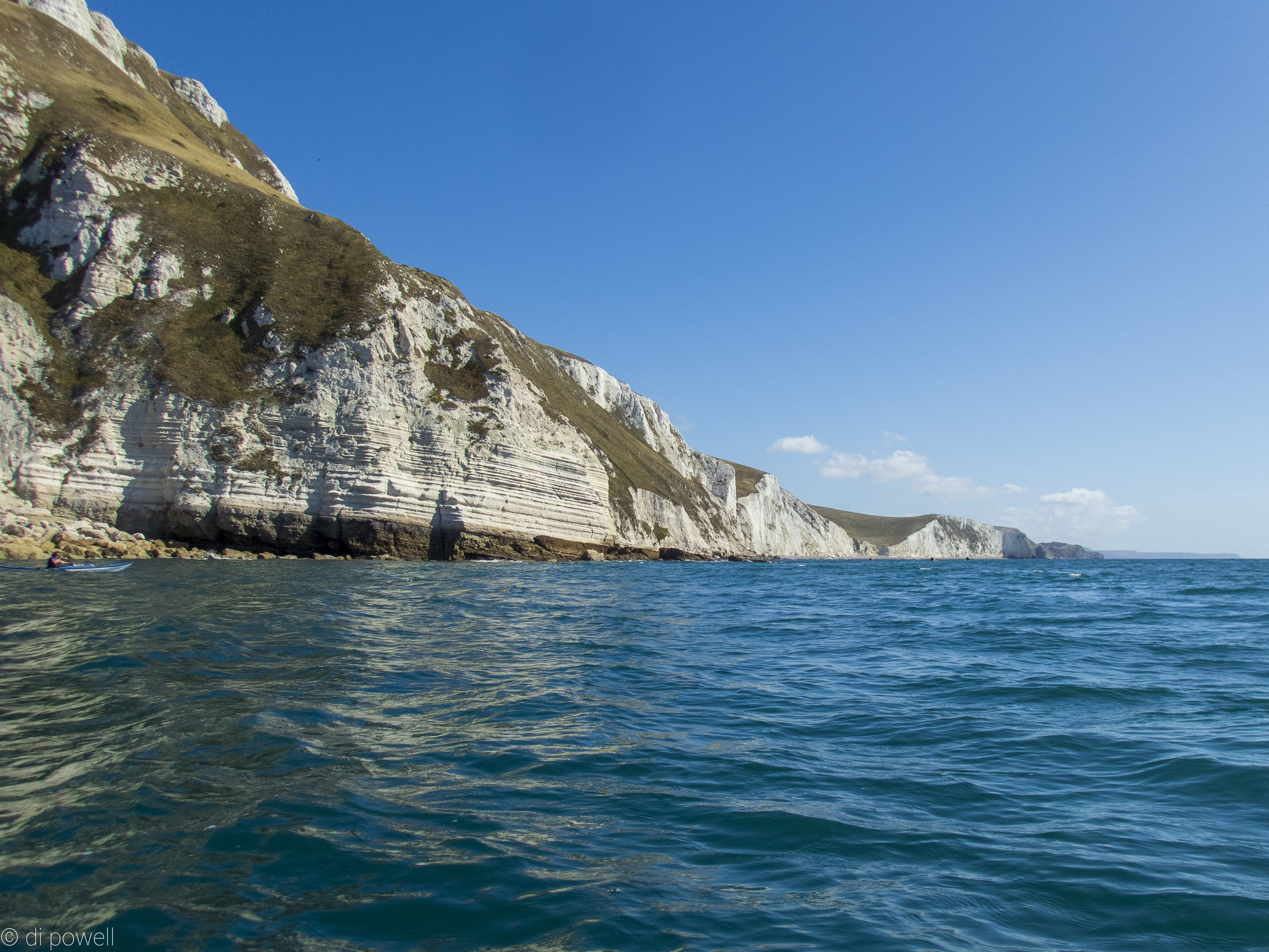 The change in rock also gave us an opportunity to rock hop. Splitting into small five people groups, separated by a few minutes, we were able to weave between rocks in the swell and between waves. For this activity it was really necessary to be wearing underpants and the performance of those without significantly declined quickly. So after a quick lunch and ice cream break at Lulworth Cove, we returned to the start point through Durdle Door and Bat Hole.
The change in rock also gave us an opportunity to rock hop. Splitting into small five people groups, separated by a few minutes, we were able to weave between rocks in the swell and between waves. For this activity it was really necessary to be wearing underpants and the performance of those without significantly declined quickly. So after a quick lunch and ice cream break at Lulworth Cove, we returned to the start point through Durdle Door and Bat Hole.
Sunday
Some of the CKC members chose to paddle from Kimmeridge to Dancing Ledge. Those suffering from chaffing chose not to paddle and went Greenland Fishing instead.
As in May, we launched underneath the folly Clavell Tower at the slipway on Kimmeridge Bay. While waiting to launch, part of the cliff on the edge of the bay collapsed into the sea.
This trip was led by two very experienced coaches Simon Waller and Natalie Maderova. Natalie had just completed a circumnavigation of Ireland and had previously completed a circumnavigation of Britain in 2012. That was really some high powered company for a Sunday paddle.
We set off in very light winds once again, turning East out of Kimmeridge Bay and across the Kimmeridge Ledges, with only 30cm of water to paddle in, then onto St Alban’s Head. St Alban’s Head can have a huge tide race, but by keeping close to the shore in both directions it was easily avoided. The main issue was to make sure the water was moving in the direction you were aiming for as the tidal stream is quite strong around the point. Again this was easily countered by either being in the main flow or the eddy, depending which way were going.
The coast between St Alban’s Head and Dancing Ledge had numerous caves and ledges, created by quarrying for the limestone. It’s also a ship grave yard with numerous shipwrecks being recorded along this coastline.
As we started to approach Dancing Ledge, it turned out that no-one had actually got that far on any previous trip, and no-one knew quite where it was. Luckily Dancing Ledge is popular with people who walk places rather than kayak, and they were able to confirm that we had indeed reached the Dancing Ledge. We were able to land on the huge ledge next to a large rock pool heated by the sun to an indoor swimming pool temperature.
After lunch, we took the opportunity to get some skills coaching from Natalie.
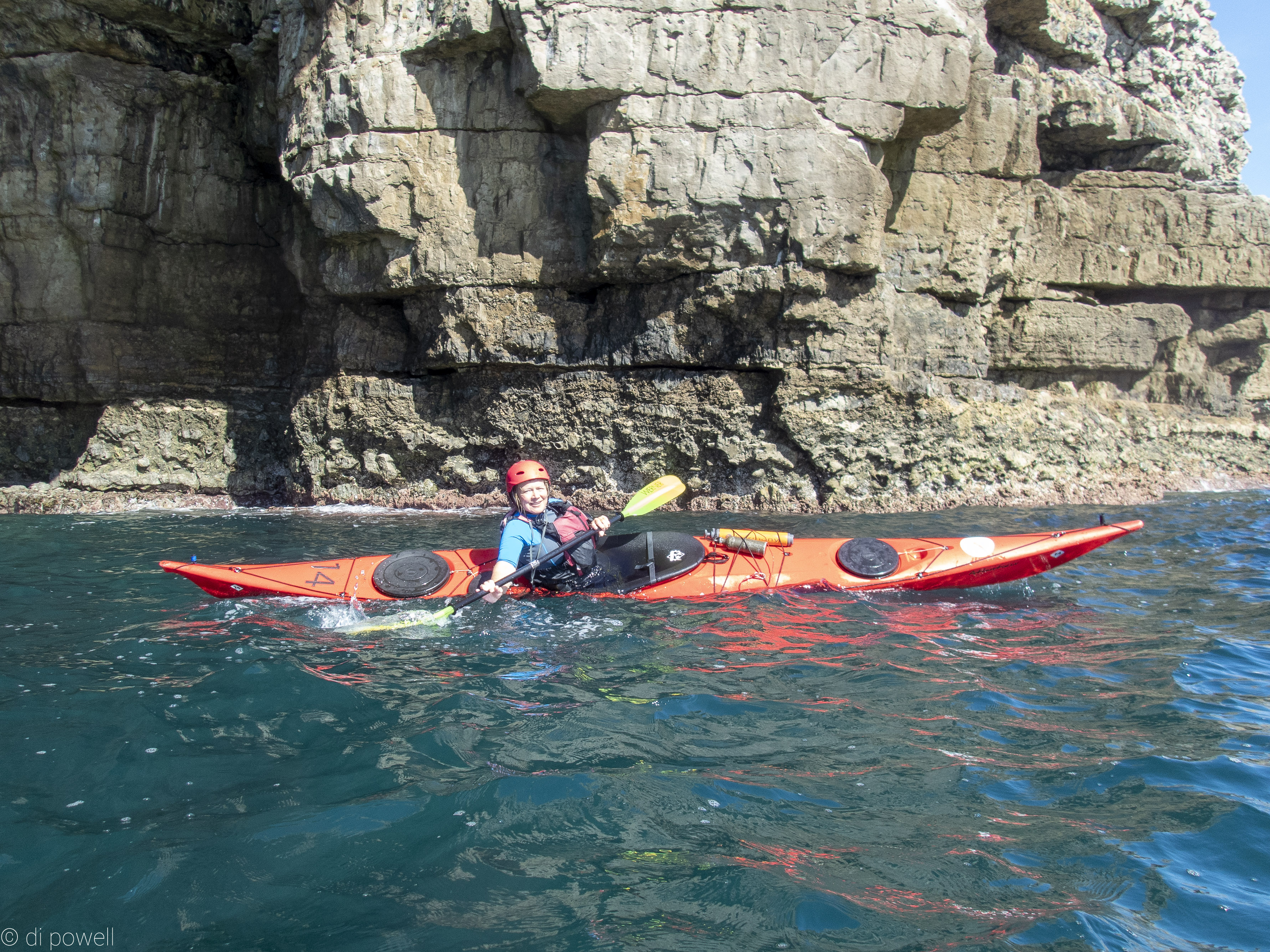 Then we headed back the way we came with a slight detour to Chapman’s Pool. In Mark Rainsley’s South West Sea Kayaking book, it is described as ‘a lovely secluded cove’, but disappointingly looked more like a quarry to the CKC team.
Then we headed back the way we came with a slight detour to Chapman’s Pool. In Mark Rainsley’s South West Sea Kayaking book, it is described as ‘a lovely secluded cove’, but disappointingly looked more like a quarry to the CKC team.
After that we paddled back to the launch point, packed up, said good-bye to new and old friends and started the drive back in the late afternoon sunshine, pretty tired but also pretty happy with having spent three days on this beautiful and dramatic coastline.
This was the first Jurassic Gathering, and there is already talk of repeating the event next year. To get the most out of this event you would need to have the British Canoeing Sea Kayak Award (3* equivalent).
If you would like to be able to undertake trips like these please contact the Training Officer about how you progress your skills. But please bring your own underpants.

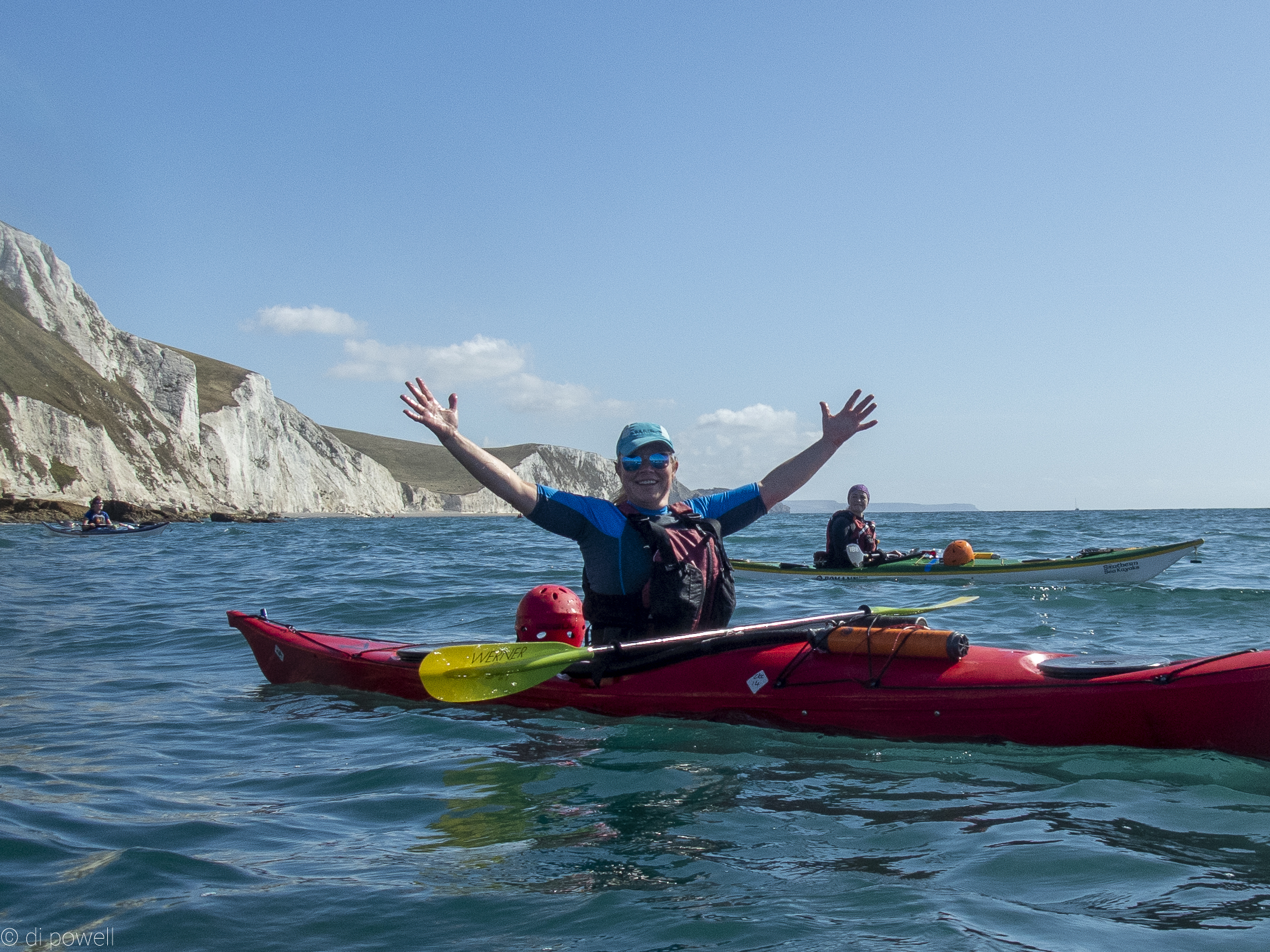
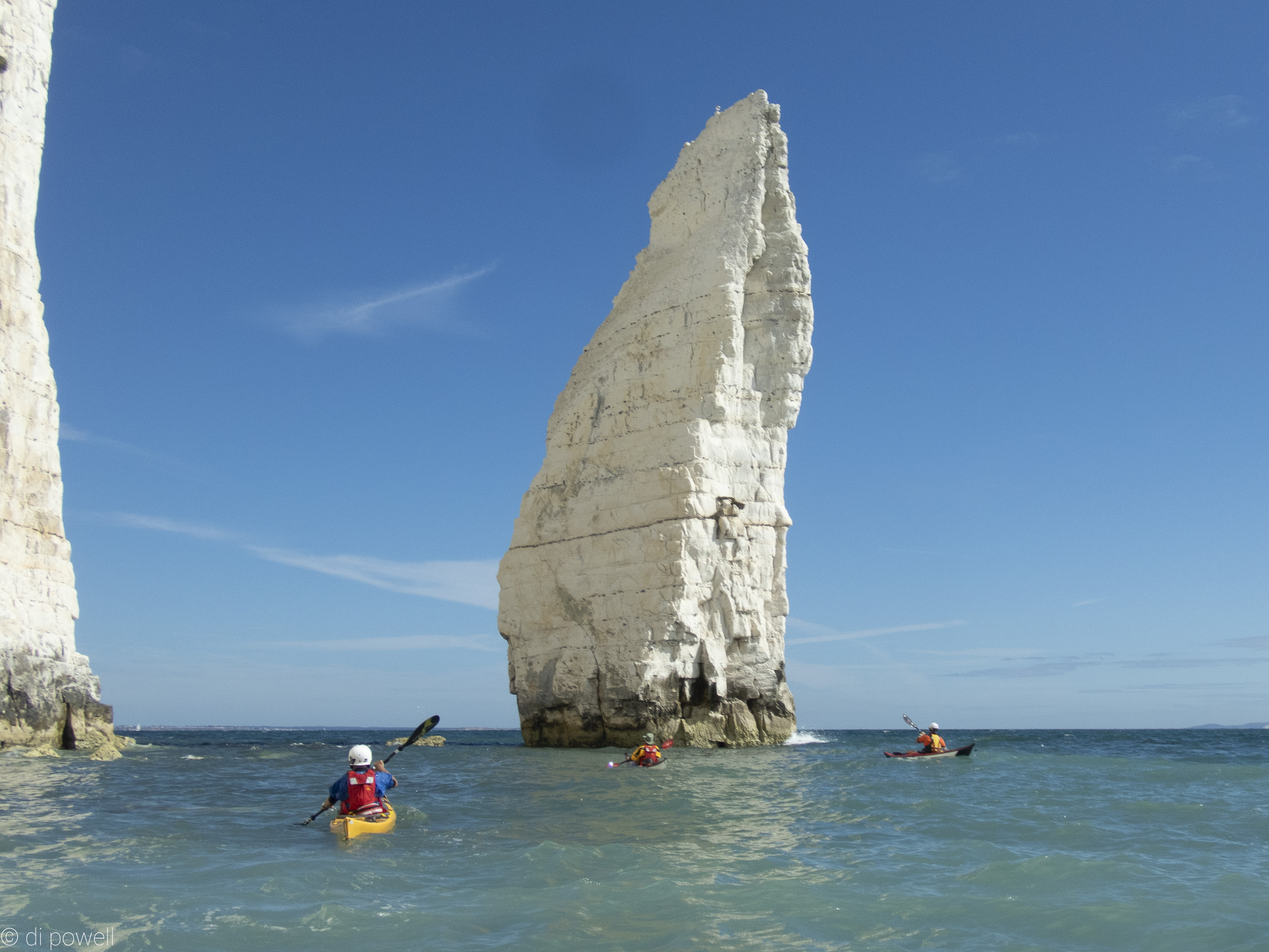
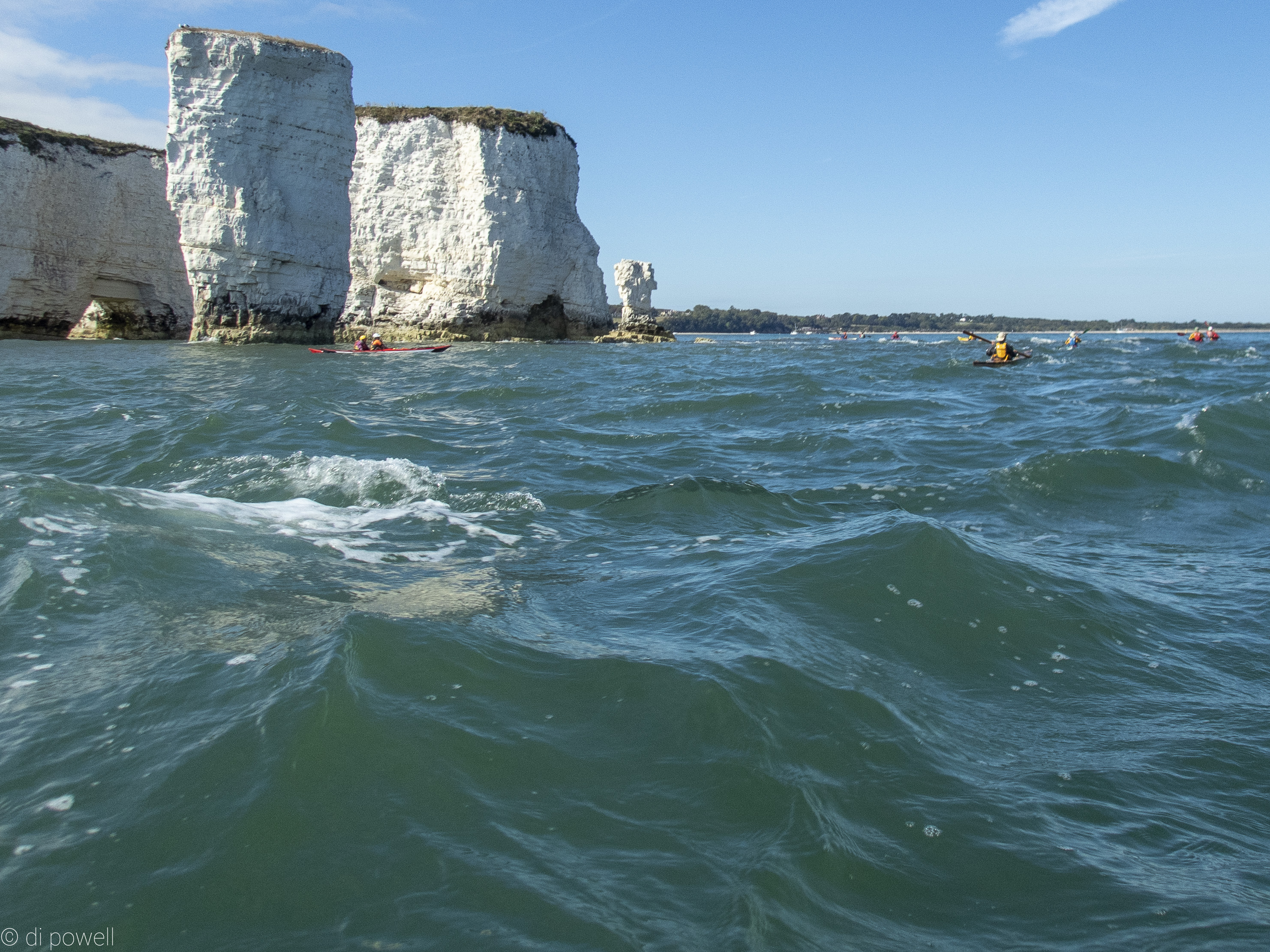
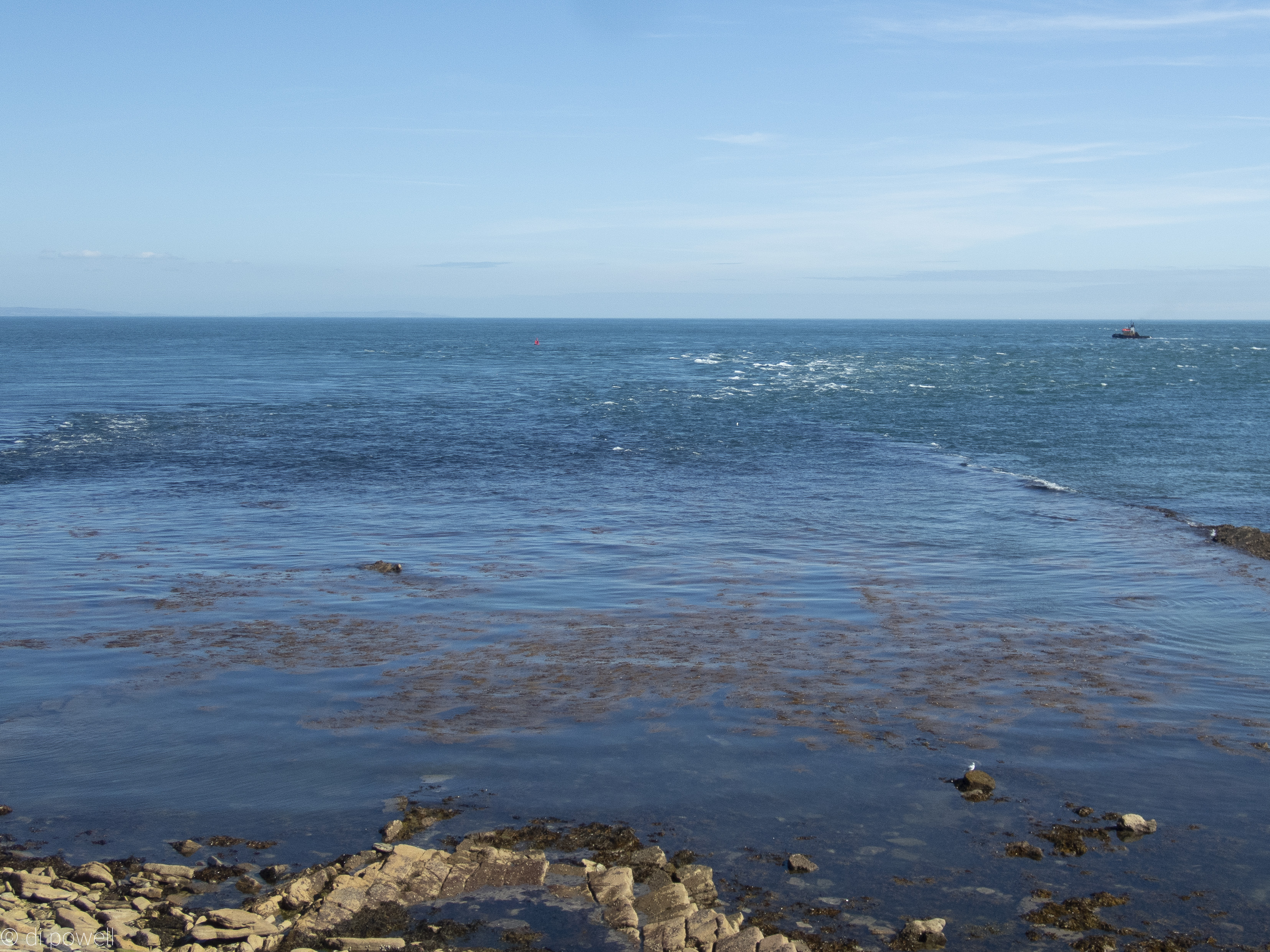
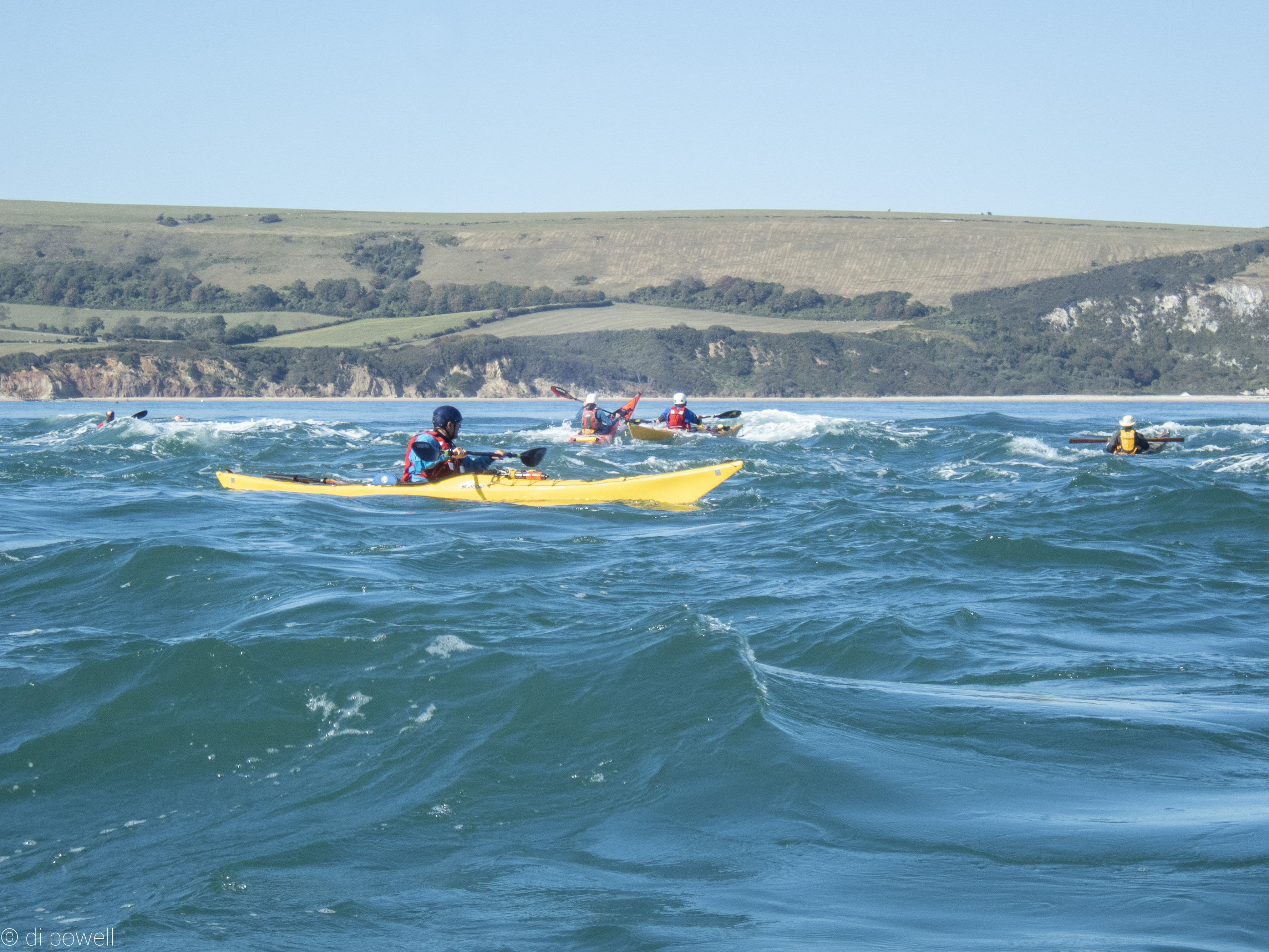
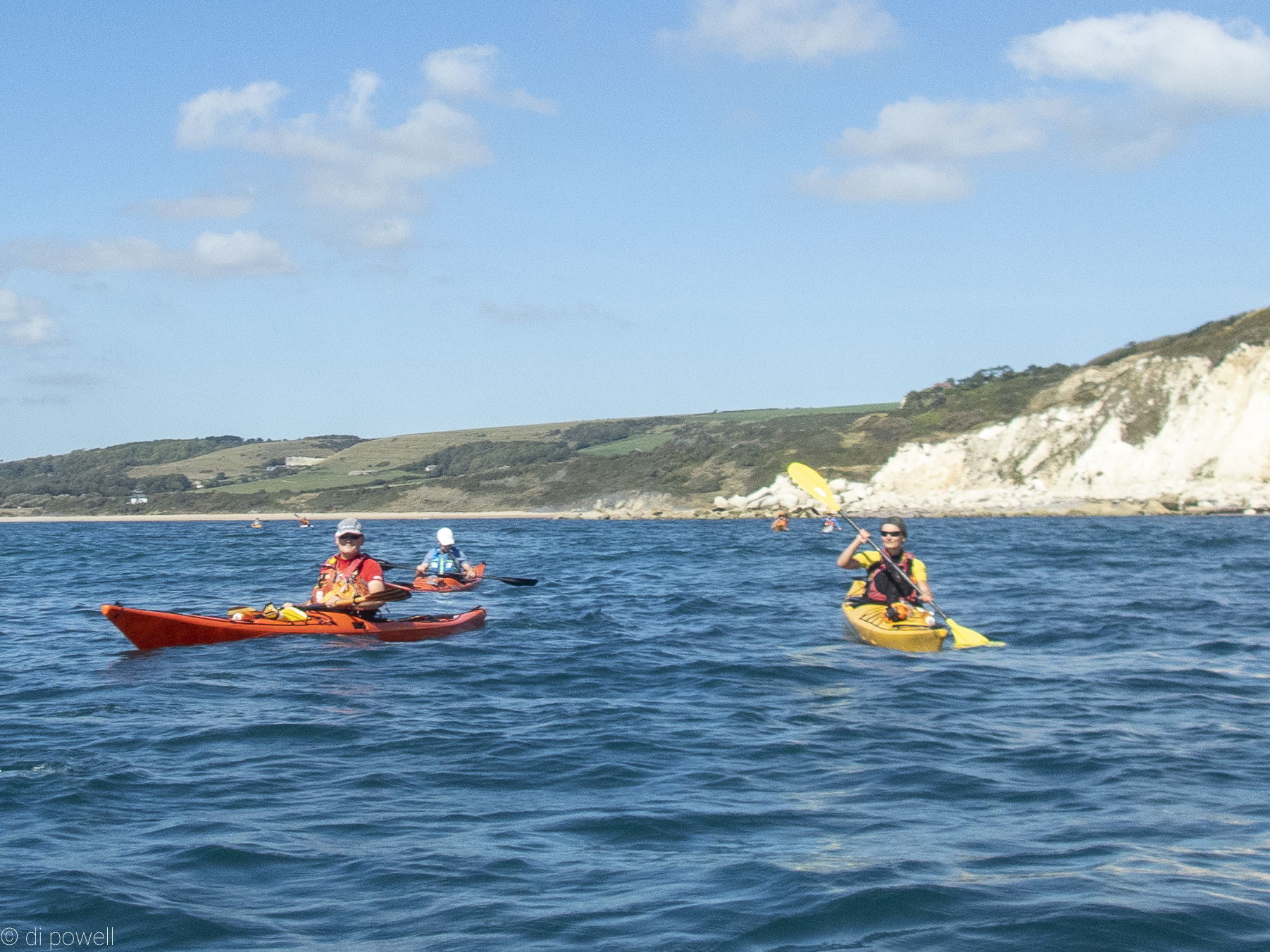
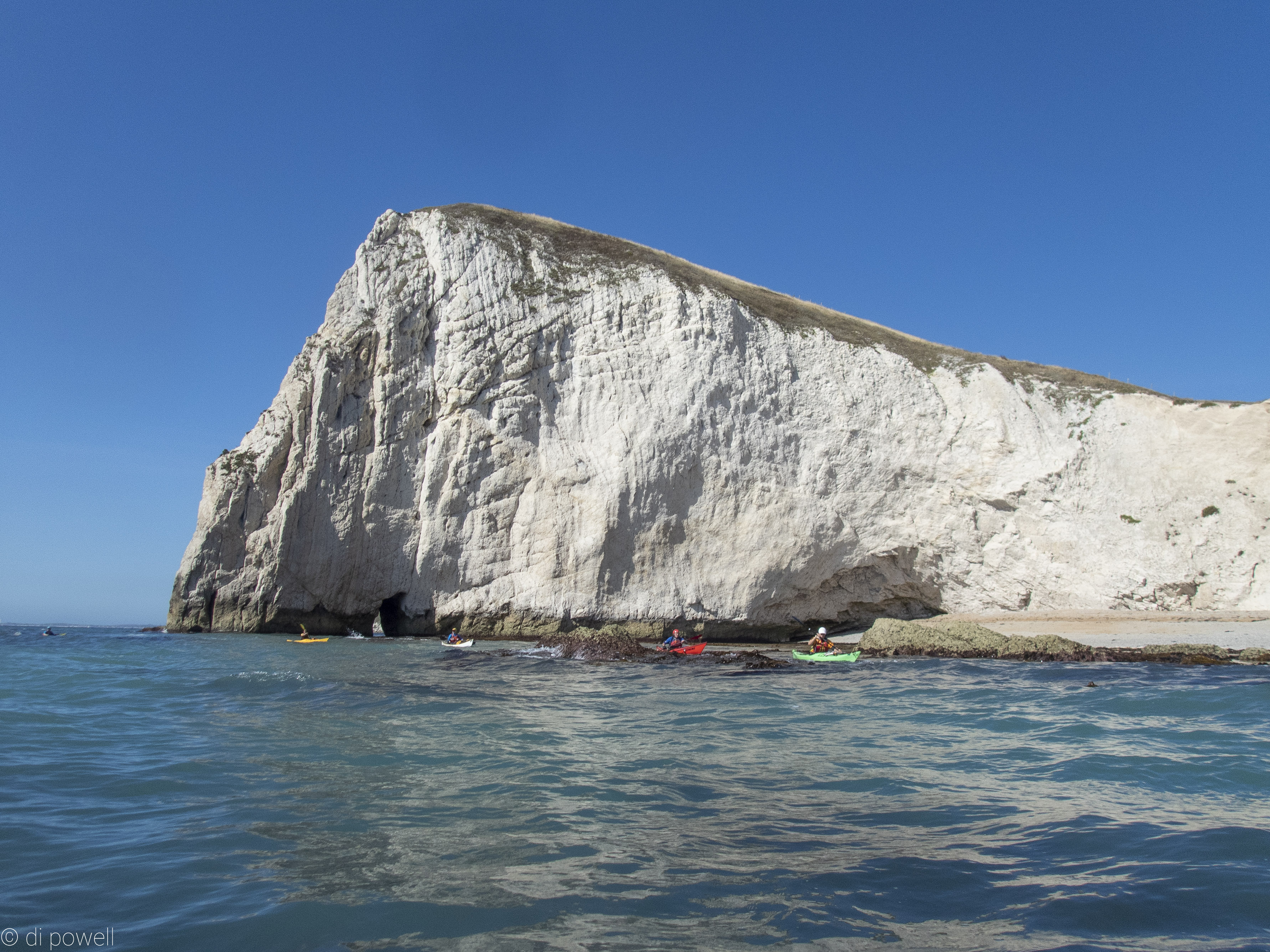
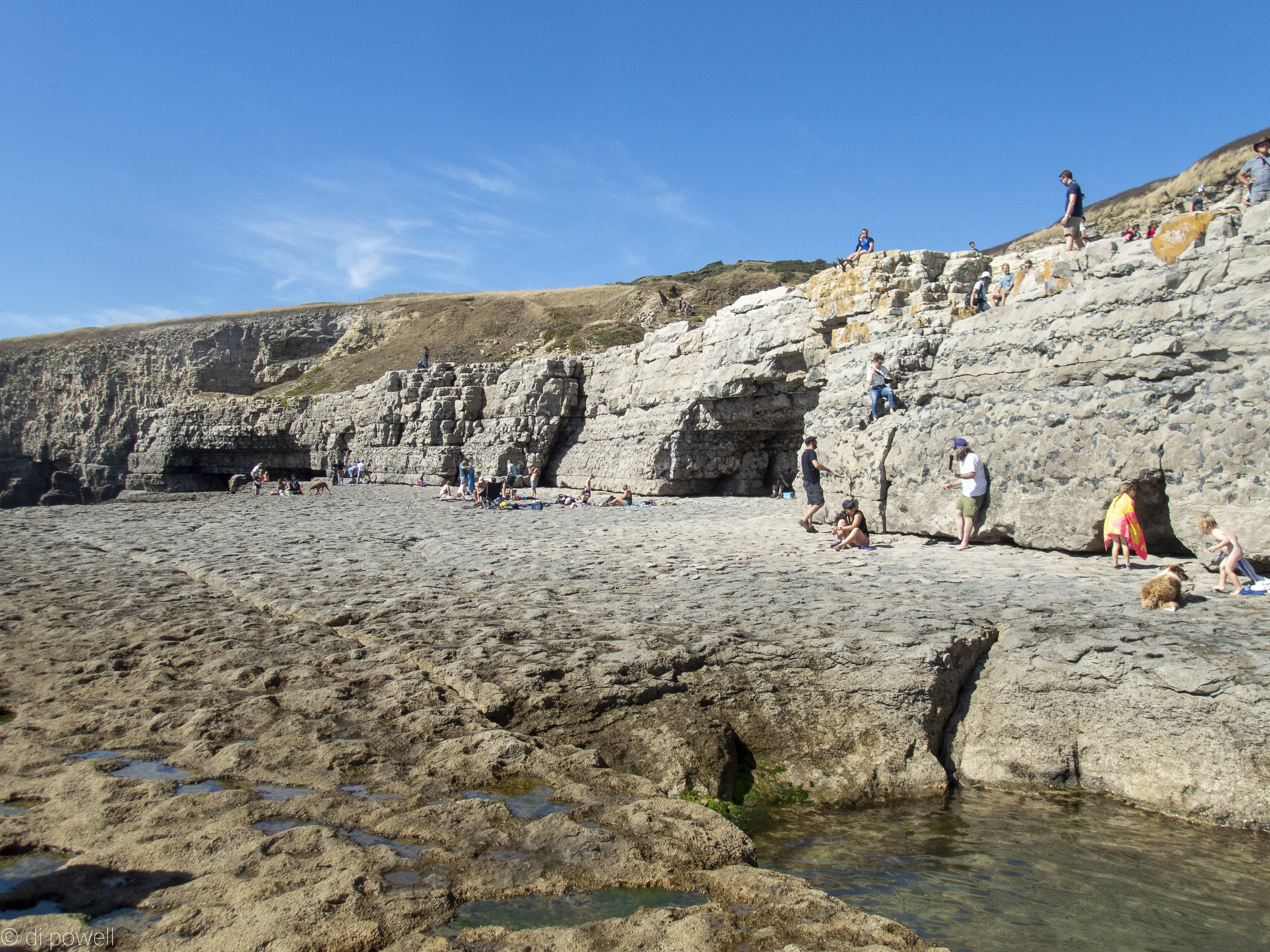
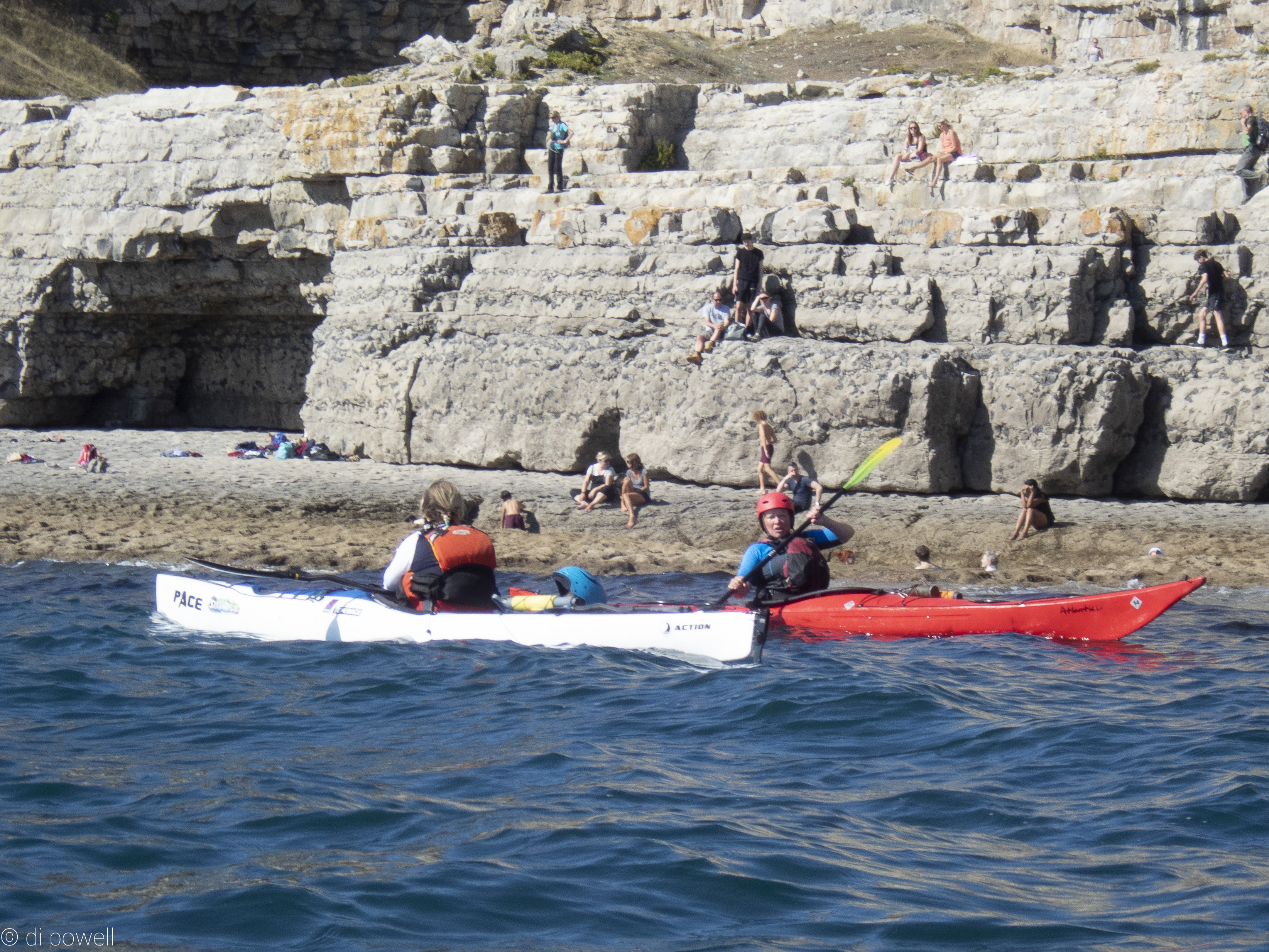

Leave a Reply